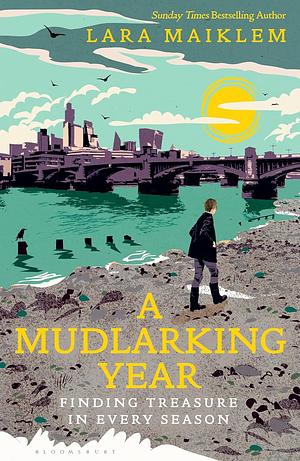Posted June 10, 2025 by Nicky in Reviews / 0 Comments

A Side Character's Love Story
Genres: Manga,
Romance Pages: 161
Series: A Side Character's Love Story #13 Rating: 
Synopsis: Nobuko and Hiroki venture to Kanazawa to celebrate their graduation, and are enjoying every minute of their trip. But as night draws closer, Nobuko struggles with nerves over the possibility that they may do more than just kiss. On top of that, it seems as though Hiroki has something he wants to tell her...
In volume 13 of Akane Tamura’s A Side Character’s Love Story, Hiroki and Nobuko finally go on their graduation trip! That’s the bulk of the volume, and it’s a delight: they spend their usual amount of effort on clear communication and sharing their feelings, and they also follow up on the previous volume’s dilemma by finally deciding that they feel comfortable enough to do more than kissing.
(It’s not explicit, by the way — we see them holding hands and kissing, and we’re told that Hiroki was very gentle, but that’s as much as we know.)
Hiroki does also tell Nobuko that he wants to marry her, and that feels surprisingly-for-them undercommunicated: he kind of springs the idea on her, and later affirms he will propose to her properly when he graduates. I guess they do swing back to it, and it’s clear it makes Nobuko happy, but she was so surprised… I don’t think they talk about it again, either.
Strange to think they’re at least two years into their relationship — the volumes have flown by!
Rating: 4/5
Tags: Akane Tamura, book reviews, books, manga, romance
Posted June 9, 2025 by Nicky in Reviews / 0 Comments

Planting Clues: How Plants Solve Crimes
Genres: Crime,
Non-fiction,
Science Pages: 240
Rating: 
Synopsis: This fascinating book takes the reader on a journey through the role of plants (including algae and fungi) in legal cases. These legal cases range from forensic applications where botanical evidence can link a suspect to a crime scene or a victim to a suspect to cases when plants themselves can be the subject of crime or misadventure. In the latter cases, plants may be poached, illegally traded and trafficked, used as poisons, or illicitly used (i.e., drugs such as cocaine). Botanical evidence has been important in bringing a number of high-profile murderers such as Ted Bundy, Ian Huntley (the 2002 Shoham Murders), and Bruno Hauptman (1932 Baby Lindbergh kidnapping) to trial. These applications of forensic botany capture the public interest; consider, for example, the fascination with Agatha Christie’s murder mysteries involving real plant poisons such as digitalis from foxgloves. The variety and value of botanical evidence including leaf fragments, woody anatomy, pollen and spores, plant toxins, and DNA, is summarized through 8 chapters. This book appeals to general readers interested in the botany underlying true crime.
At times, David J. Gibson’s Planting Clues felt just a bit too random — a string of anecdotes around forensics and botany, loosely connected at best, organised into chapters that do at least fit into coherent themes. There are some fascinating details on both botany and how botanical experts can be involved in legal cases, which at times got a bit too into the weeds for me.
The cases it discusses illustrate the points well and include some fascinating precedents, as well as discussing some big cases (like the deaths of Holly Wells and Jessica Chapman, though now I’m unsure whether the author actually named them or their murderer, which in retrospect feels a bit weird), it just… I don’t know, I found it difficult to keep my attention on it.
If you’re interested in the topic, though, it’s a good pick!
Rating: 3/5
Tags: book reviews, books, crime, David J. Gibson, non-fiction, science
Posted June 9, 2025 by Nicky in Reviews / 2 Comments

A Mudlarking Year: Finding Treasure In Every Season
Genres: History,
Memoir,
Non-fiction Pages: 358
Rating: 
Synopsis: For over two decades, Lara Maiklem has been scouring the banks of the tidal Thames looking for objects - lost or discarded - that tell forgotten stories. In this charming sequel to the bestselling Mudlarking, Lara widens her search beyond the river and reflects on life lived post-pandemic, reminding us that it's possible to draw meaning in the most unlikely of places.
As she searches the foreshore through the changing seasons, she is at times aided by the gentle illumination of the falling winter sun or hindered by bright summer skies and lashing rain. Yet, by working in harmony with the unpredictable terrain, she finds solace in aligning with the elements and uncovering the treasures that are bestowed by the tide. From medieval pilgrim badges and Tudor love tokens, to Georgian wig curlers and Victorian pottery, each passing day unearths ordinary and extraordinary objects that tell the rich story of London's past and its inhabitants.
I liked Lara Maiklem’s Mudlarking quite a bit, as I recall, and I was fascinated by the bits and pieces of historical information, the unfiltered nature of it all. Those same aspects felt more irritating here in this book, though — there’s no organisation to it, just the turning of the seasons, so there’s a lot of repetition.
In the end, I think the problem is that it comes out more as autobiography than history or even a discussion of mudlarking, and thus is just generally not my thing. There are still the same fascinating snippets, albeit with some info that I’m certain is repeated from Mudlarking, but… it doesn’t feel like anything new, and I don’t like Maiklem enough as a person (on this level of acquaintance, anyway) to be spending this much time with her. I especially don’t care enough about her kids, their process of going up, and how often she’ll leave them and her wife and just go down to the foreshore because she feels like it.
She’s mostly responsible, as mudlarks go, in relation to protection of the environment and archaeology — at the very least, she’s smarter than to say in print that she breaks the rules — and critical of other mudlarks who are less responsible, but she’s also kinda… exclusive? She seems to feel that parts of the river belong to her, and she won’t tell others where she found something, and that attitude hits wrong.
So… all in all, just not for me.
Rating: 2/5
Tags: book reviews, books, history, Lara Maiklem, memoir, non-fiction
Posted June 7, 2025 by Nicky in Reviews / 0 Comments

Sir Gawain and the Green Knight
Genres: Arthuriana,
Classics,
Poetry Pages: 114
Rating: 
Synopsis: Preserved on a single surviving manuscript dating from around 1400, composed by an anonymous master, Sir Gawain and the Green Knight was rediscovered only two hundred years ago, and published for the first time in 1839. One of the earliest great stories of English literature after Beowulf, the poem narrates in crystalline verse the strange tale of a green knight on a green horse, who rudely interrupts the Round Table festivities one Yuletide, casting a pall of unease over the company and challenging one of their number to a wager. The virtuous Gawain accepts and decapitates the intruder with his own axe. Gushing blood, the knight reclaims his head, orders Gawain to seek him out a year hence, and departs. Next Yuletide Gawain dutifully sets forth… His quest for the Green Knight involves a winter journey, a seduction scene in a dream-like castle, a dire challenge answered — and a drama of enigmatic reward disguised as psychic undoing.
Simon Armitage’s new version is meticulously responsive to the tact and sophistication of the original — but equally succeeds in its powerfully persuasive ambition to be read as an original new poem. It is as if, six hundred years apart, two northern poets set out on a journey through the same mesmeric landscapes — acoustic, physical and metaphorical — in the course of which the Gawain poet has finally found his true and long-awaited translator.
Simon Armitage’s translation of Sir Gawain and the Green Knight is not a straightforwardly scholarly one (though if you read his introduction, it’s clear that he’s critically engaged with the poem, its language, and the process of translation). It’s a bit like Seamus Heaney’s take on Beowulf: it’s a translation of Sir Gawain and the Green Knight, and it’s also something of its own.
It’s definitely not the version I used when studying the poem, though it is my favourite, and it’s long been the translation I would recommend for pure fun. If you want a version of Sir Gawain that doesn’t have any spin put on it, you’ll be best off leaving this aside and going to find a copy of the Middle English version with glosses, or if you can’t read Middle English, a reasonable scholarly facing-translation.
But this version is an excellent one as far as experiencing the poem goes, playing with the language, genuinely attempting the alliterative form (sometimes to mixed success, in my opinion), and making the poem feel pretty alive. Read it aloud to yourself if you can!
I love it dearly, and I’ve just snagged a copy of the audiobook read by Armitage on Libro.fm, which should also be great. This was a very good reread choice on my part.
Rating: 5/5
Tags: Arthurian, book reviews, books, classics, poetry, Simon Armitage
Posted June 6, 2025 by Nicky in Reviews / 0 Comments

Cat and Mouse
Genres: Crime,
Mystery Pages: 255
Series: British Library Crime Classics Rating: 
Synopsis: Girls Together magazine agony-aunt 'Mrs Friendly-wise', aka Katinka Jones, finds herself at a loose end in Swansea, and decides to pay a surprise visit to one of the magazine's regular correspondents, 'Amista'. But reaching the address a strange house perched atop a mountain which matches all of the descriptions in the letters nobody has even heard of 'Amista'. As Katinka begins to fall for the dashing master of the house, Carleon, more weird mysteries emerge and the plucky Detective Inspector Chucky joins the search for the truth in this self-consciously lurid mystery-melodrama; a rollicking cavalcade of Brand's signature twists and turns.
The first of Brand’s non-Cockrill stories to join the Crime Classics, and the sixth Brand novel in total, a series bestseller. A playful and experimental novel in which Brand sets out to combine Gothic melodrama with her signature style of mystery complete with astonishing twists and bombshell clues hiding in plain sight.
I’m not a great lover of Christianna Brand’s work, generally, and I’ve liked her books less as I’ve read more of them, somehow. So perhaps it’s not too surprising that I actively loathed the latest reissue of her work by the British Library Crime Classics series, Cat and Mouse.
As far as I can tell, it’s less intended as one of her straight-out mystery novels, and more written as a parody of dramatic gothic mysteries; it reminds me a little of Ethel Lina White’s work. And it’s excruciatingly awful to read. The main character is humiliated at every turn, and makes multiple wild accusations while acting — sorry, but this is the best word I can come up with — hysterically, there’s a romance that makes absolutely no sense… arrghhh, it just drove me nuts. I hated it.
The one good thing I can say for it is that it did genuinely feel like it was set in Wales, and evoked that perfectly.
Rating: 1/5
Tags: book reviews, books, British Library Crime Classics, Christianna Brand, crime, mystery
Posted June 5, 2025 by Nicky in Reviews / 4 Comments

Hemlock & Silver
Genres: Fantasy Pages: 368
Rating: 
Synopsis: Healer Anja knows little of politics but much of poisons. When she is summoned to treat the mysterious illness afflicting the king’s daughter, she finds herself against the clock, desperate to track down the source of the poison killing Princess Snow. But the chance discovery of a strange alternate world inside a magic mirror leads Anja to darker discoveries, including what really happened to Snow’s dead sister, Rose, and why their mother seemingly went mad and cut out her heart.
Aided by a taciturn bodyguard, a narcissistic cat, and a late Renaissance understanding of the scientific method, Anja must navigate the mysteries of the mirror world before the dark queen that dwells within rises to threaten them all.
I received a copy of this book for free in exchange for an honest review. This does not affect my opinion of the book or the content of my review.
Welp, Hemlock & Silver is a very, very T. Kingfisher sort of book. If I’d read it blind, I think I’d have picked it for a Kingfisher novel, because it has her hallmarks: very inventive interpretation of a source story while adding her own characters, a lot of warmth, and of course a central middle-aged female character who is absolutely capable, if a bit out of her depth.
That’s not to say this is a retread of other books by Kingfisher: her interpretation of the Snow White story is its own thing (and though it includes Rose Red, it’s not the “Snow White and Rose Red” story I know; closer to the Snow White story people know best through Disney). Anja and her efforts at applying the scientific method in this fairytale/medieval-technology setting are recognisable as being Kingfisher’s work, but Anja’s her own person too. I loved the scenes where she gets absolutely fascinated by a new discovery — she and I probably have some things in common!
I liked the characters a lot, including some of the side characters like Lady Sorrel, and of course, Grayling. Some of the concepts were super cool, too, with a very original monster concept about which I won’t say too much.
I did want to hit Anja with a pillow about one conclusion she’d jumped to, though…
If you’re a fan of Kingfisher, you’ll love it; if you’ve never tried it, it strikes me as a pretty good place to start.
Rating: 5/5
Tags: book reviews, books, fairytale, SF/F, T. Kingfisher
Posted June 5, 2025 by Nicky in Reviews / 0 Comments

The Other World's Books Depend on the Bean Counter (manga)
Genres: Fantasy,
Manga,
Romance Pages: 180
Series: The Other World's Books Depend on the Bean Counter (manga) #1 Rating: 
Synopsis: Once upon a time, in the not too distant past, a holy maiden was summoned. Not just any holy maiden-one hailing from modern Japan. But this story is not her story. This is the tale of the humble accountant, Kondou, who accompanied her and his trials and woes as he accounts in a new world... But no tale is complete without a love interest. And who better to play that role than the handsome knight captain Aresh? Will he begin a personal quest to save said bean counter-who toils around the clock-or is Kondou doomed to be married to his work evermore...?!
The first volume of Kazuki Irodori’s manga adaptation of Yatsuki Wakatsu’s light novel The Other World’s Books Depend on the Bean Counter is pretty fun. I like the character designs, I find it interesting that I trust almost no one other than Seiichirou and Aresh, and I’m curious where both the relationship and the story of the Holy Maiden are going.
I will say that there’s basically dubious consent sex to save someone’s life here, which is worth knowing about: Aresh cures Seiichirou from an accidental overdose using magic, which he can’t tolerate either, and then has to “familiarise Seiichirou with his magic” (with close contact) in order to save his life from that. He does try to obtain consent, but it’s not clear that Seiichirou understands. I wonder how this bit comes across in the light novel; it’s fairly skated over in the manga, beyond a few scenes. It doesn’t seem like Seiichirou hates it or anything, and he still has some room to protest, but still, if you don’t like that kind of scenario or find it triggering, it’s useful to know.
It’s hard to evaluate exactly what I think of this series yet, but I’m looking forward to reading more and wondering about the light novel (which may contain some more detail and context), so it’s a good start for me!
Rating: 3/5
Tags: book reviews, books, Kazuki Irodori, manga, romance, SF/F, Yatsuki Wakutsu
Posted June 4, 2025 by Nicky in Reviews / 2 Comments

Jane Austen in 41 Objects
Genres: History,
Non-fiction Pages: 224
Rating: 
Synopsis: Among objects described in this book are a teenage notebook, a muslin shawl, a wallpaper fragment, a tea caddy, the theatrical poster for a play she attended, and the dining-room grate at Chawton Cottage where she lived. Poignantly, the last manuscript page of her unfinished novel and a lock of hair, kept by her devoted sister, Cassandra, are also featured. Objects contributing to Austen's rich cultural legacy include a dinner plate decorated by Bloomsbury artists Vanessa Bell and Duncan Grant, Grayson Perry's commemorative pot from 2009, and even Mr Darcy's wet shirt, worn by Colin Firth in the 1995 BBC adaptation.
More than two hundred years after Jane Austen's death at the age of just forty-one, we are still looking for clues about this extraordinary writer's life. What might we learn if we take a glimpse inside the biographies of objects that crossed her path in life and afterward: things that she cherished or cast aside, that furnished the world in which she moved, or that have themselves been inspired by her legacy?
This is a different kind of biography, in which objects with their own histories offer shifting entry points into Jane Austen's life. Each object, illustrated in color, invites us to meet Austen at a particular moment when her life intersects with theirs, speaking eloquently of past lives and shedding new light on one of our best-loved authors.
I’m not a huge Jane Austen fan — I’ve read some of the books and did enjoy them (sorry, Mum, I know you reaaally don’t like Austen), and I can appreciate their importance as literature, but I’m no Janeite. I think that’s probably the primary audience for this book, but for me, I was attracted by the “x in y objects” format, which I always enjoy.
This is a nicely presented variation on that theme, with full colour glossy images, short descriptions of the signifiance of each, and even the ability to just dip in and out if you want (there’s no overarching narrative). I might possibly prefer a slightly more organised and deliberate style, where each object leads to another, or there’s a stronger chronological theme (though the items are somewhat in time-order).
I did find that the introduction was a bit overly scholarly compared to the actual contents, so if you find that’s bogging you down, and you’re still interested in the contents, just skip it. It’s 22 pages long and took me 15 minutes to read, compared to the 50 minutes it took me to read the other 167 pages…
Rating: 4/5
Tags: book reviews, books, history, Kathryn Sutherland, non-fiction
Posted June 2, 2025 by Nicky in Reviews / 0 Comments

The Graves: Srebenica and Vukovar
Genres: History,
Non-fiction Pages: 334
Rating: 
Synopsis: This book is the harrowing account by Eric Stover, with photographs by Gilles Peress, of how, from a hell of mud and decomposing bodies, Haglund began to piece together the victims' identities and the terrible ways they died. Over 40,000 Muslim refugees were living in and around Srebenica when it fell to the Serbs, under General Ratko Mladic in July 1995. Of the men who fled, or were rounded up by Serb troops, many were never seen again. Stover talks to the surviving families, women and children including the women of Srebrenica still clinging to the hope that their men are alive even as Haglund's investigations prove otherwise. Mladic has since been charged with crimes of genocide. But Stover identifies a lack of political will to arrest the criminals and bring them to trial. Until then, justice will not have been done.
Gilles Peress and Eric Stover’s The Graves: Srebenica and Vukovar is, as it should be, horrifying. It’s illustrated with many many photographs, but also has a certain amount of explanatory text (especially partway through) which gives context, explains the images chosen, etc.
The main quibble I have is with the presentation, which I found annoying — I had to spin the book around, and the text doesn’t always run in the directions you’d expect. I think it’d have been better at coffee-table book size, despite the weirdness of thinking of a book like this as anything like a coffee-table book.
Still, a valuable read, if awful.
Rating: 4/5
Tags: book reviews, books, Eric Stover, Gilles Peress, history, non-fiction
Posted June 1, 2025 by Nicky in Reviews / 0 Comments

The World's Wife
Genres: Poetry Pages: 76
Rating: 
Synopsis: A collection of poems, each of which takes a famous male person or character -- Midas, Darwin, Quasimodo, Pontious Pilate, King Kong -- and presents their story from the perspective of the lesser-known wife.
Carol Ann Duffy’s The World’s Wife is at times playful, at times angry, and sometimes (but mostly not) tender. It’s giving voice to the women of various mythological and historical figures — Mrs Darwin, for example, though that isn’t a poem I like at all. Some of them do feel like angry cheap shots, I’ll be honest; I didn’t love them when I first read it, and I still don’t now, even though I do understand some of the anger and spite.
‘Mrs Tiresias’ definitely reads differently than it used to; I don’t think it’s meant to be about a transwoman, personally, but it can definitely be read that way, and that makes it a nasty one.
That said, there are some lovely ones as ever, and ‘Anne Hathaway’ remains a favourite:
“Some nights I dreamed he’d written me, the bed
a page beneath his writer’s hands. Romance
and drama played by touch, by scent, by taste.
In the other bed, the best, our guests dozed on,
dribbling their prose. My living laughing love –
I hold him in the casket of my widow’s head
as he held me upon that next best bed.”
And if you’d doubted that Duffy could write a sonnet, well, there you have it.
Rating: 3/5
Tags: book reviews, books, Carol Ann Duffy, poetry















